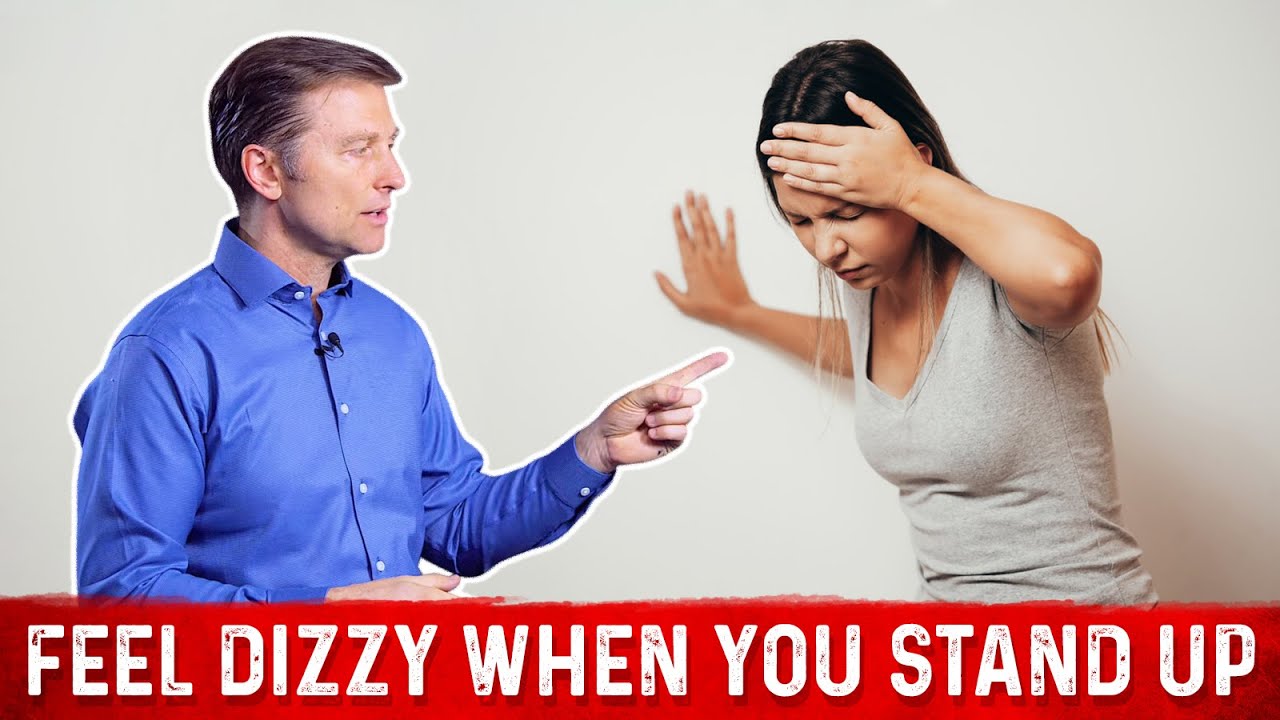The Causes of Feeling Dizzy When Standing Up
Experiencing dizziness when transitioning from a sitting or lying position to standing can be disconcerting. In this comprehensive guide, we will explore the various causes behind feeling dizzy when standing up, symptoms to watch for, and when to seek medical attention.
What Causes Dizziness When Standing Up?
Dizziness upon standing has multifaceted origins, and understanding these factors is crucial. Let’s delve into the common medical reasons that can leave you feeling unsteady when you rise.

Symptoms and Signs
Dizziness when standing up can manifest in diverse ways. Familiarize yourself with the telltale symptoms, which often include lightheadedness, fainting, or a sensation of spinning. These symptoms may vary in intensity and can carry essential clues about the underlying cause.
When to Seek Medical Attention
While occasional dizziness when standing up may not be alarming, some situations warrant immediate medical attention. It’s crucial to consult a healthcare professional if you experience:
Persistent Dizziness:
If dizziness lingers or recurs frequently, it may signal an underlying issue that requires evaluation.
Loss of Consciousness:
Fainting or losing consciousness when standing should be addressed promptly.
Chest Pain:
Dizziness accompanied by chest pain or discomfort can indicate a cardiac concern and medical help should be sought immediately.
Difficulty Speaking or Weakness:
If dizziness is accompanied by slurred speech, weakness on one side of the body, or difficulty moving, it could be a sign of a stroke.
Home Remedies and Tips
For mild cases of dizziness when standing up, you can take several steps at home to alleviate the symptoms and prevent future episodes:
Stay Hydrated:
Dehydration can contribute to dizziness. Ensure you’re drinking enough water throughout the day.
Rise Slowly:
When transitioning from sitting or lying down to standing, do so gradually. This can help your body adjust to changes in position.
Avoid Sudden Movements:
Quick movements can trigger dizziness. Be mindful of sudden changes in posture.
Eat Regularly:
Skipping meals can lead to low blood sugar, which may cause dizziness. Maintain regular and balanced eating habits.
Medical Evaluation and Diagnosis
If you’re experiencing persistent or severe dizziness when standing, it’s essential to undergo a medical evaluation. Healthcare professionals employ various diagnostic tools and techniques to identify the root cause, such as:
Blood Pressure Monitoring:
Fluctuations in blood pressure can contribute to dizziness. Monitoring blood pressure changes during position shifts is a common diagnostic approach.
Blood Tests:
Blood tests can help identify underlying conditions such as anemia or metabolic disorders.
Electrocardiogram (ECG or EKG):
An ECG measures heart activity and can detect irregularities that may contribute to dizziness.
Treatment Options
Treatment for dizziness when standing up varies depending on the underlying cause. Here are some common approaches:
Hydration:
If dehydration is the culprit, increasing fluid intake can alleviate symptoms.
Medication:
In some cases, your doctor may prescribe medications to manage conditions like low blood pressure or vestibular disorders.
Physical Therapy:
Physical therapists can help with balance issues and provide exercises to improve stability.
FAQs’S About dizzy when standing up
1. What causes dizziness when I stand up suddenly?
Dizziness upon sudden standing may result from a drop in blood pressure or orthostatic hypotension. Dehydration or certain medications can also be factors.
2. Are there serious health conditions associated with dizziness when standing up?
While dizziness is often harmless, it can sometimes signal underlying issues such as heart problems, anemia, or inner ear disorders. Consult a doctor if it persists.
3. How can I prevent dizziness when standing up?
Staying hydrated, rising slowly, avoiding sudden movements, and maintaining a balanced diet can help prevent dizziness upon standing.
4. Is dizziness when standing up more common in older adults?
It can affect people of all ages, but it’s more prevalent in older adults due to changes in blood pressure regulation.
5. What should I do if I feel dizzy when I stand up?
If you experience dizziness, sit or lie down immediately to avoid falling. If it persists, consult a healthcare professional.
6. Can stress or anxiety cause dizziness when standing up?
Yes, stress and anxiety can lead to dizziness or lightheadedness. Managing stress through relaxation techniques can help alleviate these symptoms.
7. Are there specific exercises to improve balance and reduce dizziness?
Yes, physical therapy exercises can enhance balance and reduce dizziness, especially if the issue is related to inner ear problems.
8. Does medication contribute to dizziness when standing up?
Some medications can lead to dizziness as a side effect. Consult your doctor if you suspect your medication is causing this issue.
9. Can dehydration cause dizziness when standing up?
Yes, dehydration can lower blood pressure and lead to dizziness upon standing. Drinking enough water is essential to prevent this.
Conclusion:
Dizziness when standing up can range from a mild inconvenience to a sign of a more serious medical issue. It’s crucial to listen to your body, understand the potential causes, and seek medical guidance when necessary. By doing so, you can take proactive steps to manage and improve your health.




